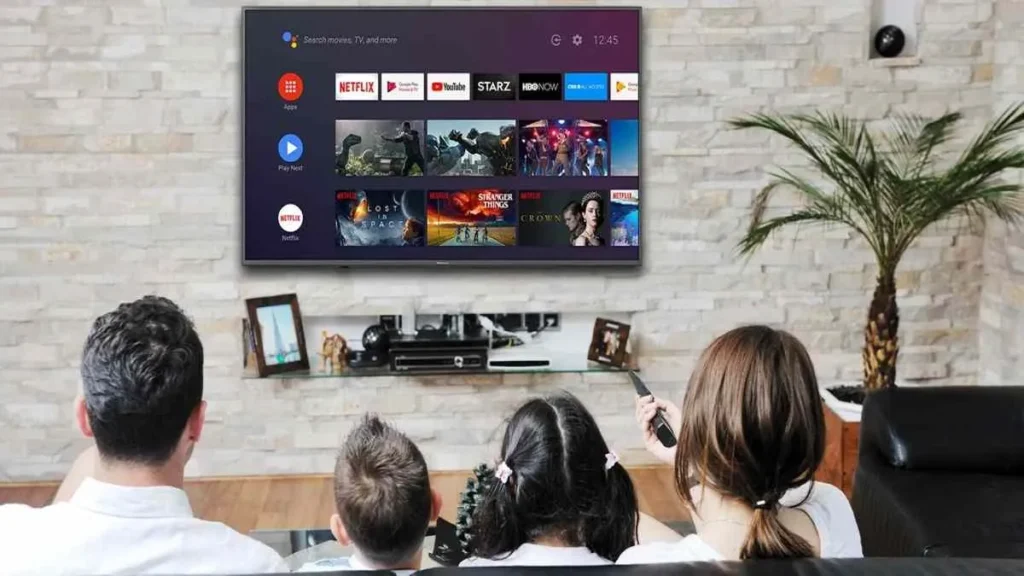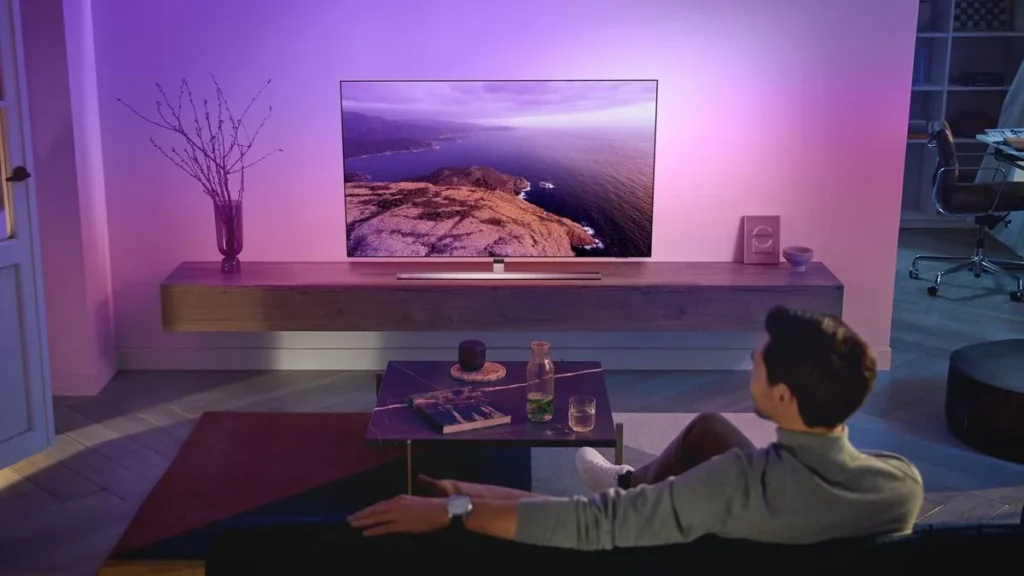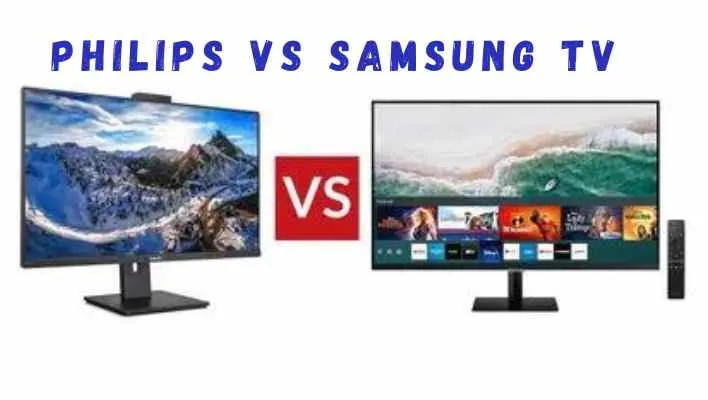The two biggest TV manufacturers in the world are Philips and Samsung, and they have been competing for decades for market share. It is difficult to decide which brand is right for you when each company has its own strengths and weaknesses. We will compare Philips and Samsung TVs in this blog post based on picture quality, sound quality, smart features, and prices.
Philips vs Samsung TV
Comparison between both giants Samsung tv and Philips tv.
Samsung and Philips tv picture quality
It is generally considered that Samsung TVs offer a slight edge in picture quality, particularly in high-end models, compared to Philips’ televisions. Samsung TVs have a wide range of picture quality levels, but Samsung TVs tend to offer a more vibrant picture. Samsung TVs are distinguished by their superior color accuracy and brightness due to their use of QLED, a type of display panel. In contrast, Philips TVs typically use LCD panels, which are not as bright or colorful as QLED panels.

Sound Quality
In comparison to Philips’ televisions, Samsung TVs typically offer a slight edge in picture quality, particularly on high-end models. Although Samsung TVs come in a wide range of picture quality levels, they tend to display more vibrant images. QLEDs, a type of display panel, are used in Samsung TVs to provide superior color accuracy and brightness. By contrast, Philips TVs typically feature LCD panels, which are not as bright or colorful as QLED panels.
Smart Features
There are many smart features available on Philips and Samsung TVs, such as streaming apps, voice control, and web browsing. However, Samsung TVs are generally considered to be more advanced, especially with regard to smart features. Samsung TVs are often faster and more responsive than Philips TVs, because they have a higher amount of RAM and more powerful processors, which makes it easier for apps to run smoothly.

Price
A wide range of prices can be found for Philips and Samsung TVs. Samsung TVs tend to be more expensive than Philips TVs, as they contain more features and offer better picture quality. A Philips TV may not be as well-equipped as a Samsung TV, but it is a more affordable option.
So, which brand is right for you?
Depending on your wants and needs, you might prefer a Samsung TV if you’re looking for the best picture and sound quality possible. Alternatively, Philips televisions may be more affordable if you’re on a budget.
Here is a table summarizing the key differences between Philips and Samsung TVs:
| Feature | Philips TV | Samsung TV |
| Picture quality | Good | Excellent |
| Sound quality | Good | Excellent |
| Smart features | Good | Excellent |
| Price | Affordable | More expensive |
Conclusion
Samsung and Philips are two great TV brands that both have a lot to offer. The best way to choose between these two brands is to compare the specific models you are considering and see which one matches your needs.
If you are choosing a TV, consider the following factors along with the ones mentioned above:
- Brand reputation: Philips and Samsung have both made quality televisions for decades.
- Customer service: Samsung and Philips both provide excellent customer service.
- Warranty: There is a good warranty offered by both Philips and Samsung.
Frequently Asked Questions (FAQs)
Which brand offers better picture quality, Philips or Samsung?
Both Philips and Samsung are known for their high-quality displays, but Samsung often leads in technology innovations such as QLED and 8K resolution. Philips, however, offers unique features like Ambilight, enhancing the viewing experience by projecting light from the sides of the TV to match on-screen content.
Are Philips TVs more affordable than Samsung TVs?
Generally, Philips TVs are considered to offer a good balance between price and performance, often coming in at a lower price point than Samsung’s models, especially when comparing TVs with similar features and screen sizes.
Which TV brand offers better smart TV features?
Samsung might have a slight edge in this category with its Tizen OS, known for its user-friendly interface and wide range of apps and services. Philips TVs use Android TV, which offers a vast selection of apps through the Google Play Store and is highly customizable.
How do Philips and Samsung TVs compare in terms of design and build quality?
Samsung TVs are renowned for their sleek, modern designs and are often thinner, which makes them a favorite for wall mounting. Philips offers robust build quality as well, with some models featuring unique design elements such as the Ambilight technology.
Can I use voice commands with Philips and Samsung TVs?
Yes, both brands support voice commands. Samsung TVs work with Bixby, Google Assistant, and Amazon Alexa, while Philips TVs are compatible with Google Assistant and, in some regions, Amazon Alexa.
How does the gaming experience compare between Philips and Samsung TVs?
Samsung TVs are generally favored by gamers for their low input lag, high refresh rates, and support for various gaming features like AMD FreeSync. Philips also offers models suitable for gaming, but Samsung’s focus on gaming technology gives it an edge in this area.
Which brand offers better warranty and customer support?
Both brands provide competitive warranties and customer support services. The specifics can vary by region, so it’s advisable to check the warranty terms and the availability of support services in your area before making a purchase.
Are there any exclusive features that set Philips and Samsung TVs apart?
Yes, Philips is unique for its Ambilight technology, which provides an immersive viewing experience by extending the on-screen colors to the walls around the TV. Samsung offers several exclusive technologies, including Quantum Dot (QLED) displays for enhanced color and brightness, as well as The Frame TV, which doubles as a piece of art when not in use.
